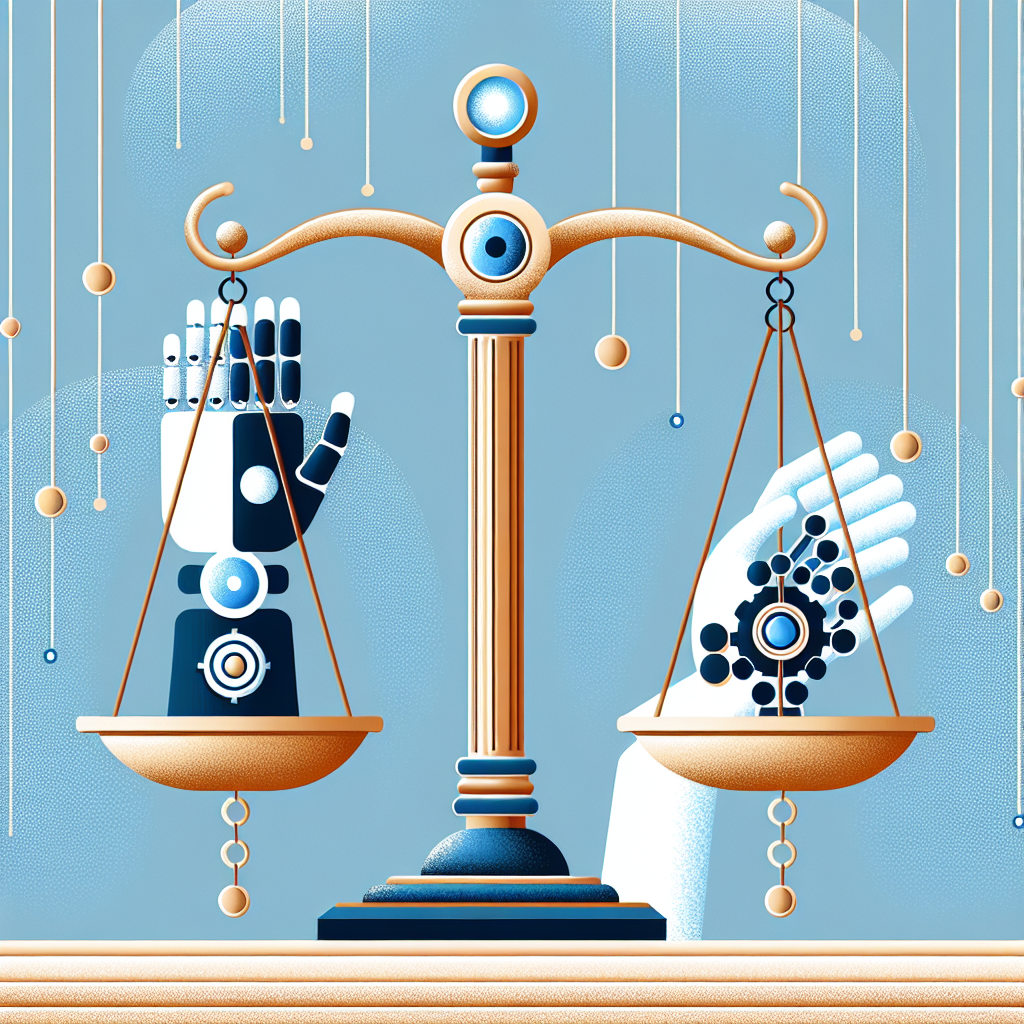The use of artificial intelligence (AI) in criminal justice systems has raised a number of ethical implications that must be carefully considered. While AI has the potential to greatly improve the efficiency and effectiveness of these systems, there are also concerns about bias, transparency, and the potential for misuse. In this article, we will explore some of the key ethical considerations surrounding the use of AI in criminal justice, as well as some frequently asked questions on the topic.
One of the primary ethical concerns surrounding AI in criminal justice is the issue of bias. AI systems are only as unbiased as the data that is used to train them, and there is a risk that these systems could perpetuate or even exacerbate existing biases in the criminal justice system. For example, if a predictive policing algorithm is trained on historical crime data that is already biased against certain communities, the algorithm may end up targeting those communities disproportionately, leading to further discrimination.
Transparency is another key ethical consideration when it comes to AI in criminal justice. In order for these systems to be trusted and accepted by the public, it is important that they are transparent about how they work and the data that they use. However, many AI systems in criminal justice are proprietary and therefore not subject to public scrutiny. This lack of transparency can lead to a lack of accountability and potentially harmful outcomes.
There are also concerns about the potential for AI to be used in ways that infringe on individual rights and freedoms. For example, some AI systems are being used to predict recidivism rates and make decisions about sentencing and parole. While these systems may be able to identify patterns and trends that human judges might overlook, there is a risk that they could lead to unfair or unjust outcomes. Additionally, there are concerns about the potential for AI to be used for mass surveillance and monitoring of individuals, raising questions about privacy and civil liberties.
Despite these ethical concerns, there are also potential benefits to the use of AI in criminal justice. For example, AI systems can help to automate routine tasks, freeing up human resources to focus on more complex and nuanced aspects of criminal justice. AI can also help to analyze large amounts of data quickly and accurately, potentially leading to more effective crime prevention and investigation.
In order to address these ethical concerns and maximize the benefits of AI in criminal justice, it is important for policymakers, technologists, and ethicists to work together to develop guidelines and regulations that ensure that these systems are used responsibly and ethically. This may include measures such as auditing AI systems for bias, ensuring transparency and accountability, and providing safeguards to protect individual rights and freedoms.
Frequently Asked Questions:
Q: How can we ensure that AI systems in criminal justice are fair and unbiased?
A: One way to address bias in AI systems is to carefully curate and clean the data that is used to train them. It is also important to regularly audit these systems for bias and to be transparent about how they work and the data that they use.
Q: What are some potential risks of using AI in criminal justice?
A: Some potential risks include the perpetuation of bias, lack of transparency, infringement on individual rights and freedoms, and the potential for misuse.
Q: How can AI be used responsibly in criminal justice?
A: To use AI responsibly in criminal justice, it is important to develop guidelines and regulations that ensure transparency, accountability, and the protection of individual rights. It is also important to regularly audit these systems for bias and to ensure that they are used in a fair and ethical manner.
In conclusion, the use of AI in criminal justice systems has the potential to greatly improve the efficiency and effectiveness of these systems. However, there are also significant ethical implications that must be carefully considered. By addressing issues such as bias, transparency, and individual rights, we can ensure that AI is used responsibly and ethically in the criminal justice system.

